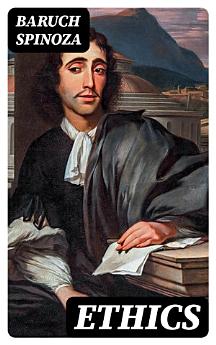Ethics
Baruch Spinoza
Nov 2022 · DigiCat
Ebook
148
Pages
family_home
Eligible
info
reportRatings and reviews aren’t verified Learn More
About this ebook
Baruch Spinoza's "Ethics" is a pivotal work in Western philosophy, blending rigorous analytical rigor with a deep metaphysical exploration of reality. Fueled by a radical departure from Cartesian dualism, Spinoza introduces a geometrical method that elucidates complex ideas through clear axioms and propositions. The content delves into the nature of God, the universe, and human emotion, asserting that everything stems from a single substance—God or nature—and marks a foundational moment in rationalist thought by intertwining ethics with epistemology and metaphysics. Spinoza, a 17th-century Dutch philosopher, faced immense challenges due to his radical ideas, often deemed heretical. Growing up in a Jewish community that excommunicated him for his views, Spinoza's background in rabbinical scholarship and his deep engagement with the works of Descartes and Hobbes shaped his philosophical inquiries. His perseverance in articulating a rational outlook on spirituality and ethics reflects his commitment to a coherent and unified understanding of existence, which was profoundly countercultural for his time. "Ethics" is an essential read for anyone seeking to understand the interrelation of reason, emotion, and virtue. It poses striking questions about the nature of freedom, the essence of good, and the role of human beings in the cosmos. Spinoza's work will invigorate your philosophical journey, offering insights that resonate with contemporary existential and ethical debates.
About the author
Baruch Spinoza (1632–1677) was a philosopher of Sephardic Jewish origin from Amsterdam, who delved into questions of ethics, metaphysics, and anthropology. Spinoza's magnum opus, 'Ethics,' was published posthumously in 1677, and it represents a pinnacle of Enlightenment thought. His works lay the groundwork for the 18th-century Enlightenment and modern biblical criticism. Spinoza wrote in a deductive, geometrical fashion, aiming to demonstrate philosophical truths with the precision akin to mathematical proofs. Often regarded as the 'prince' of philosophers, Spinoza was a rationalist who believed in the power of pure reason and was deeply influenced by the philosophy of Descartes, yet he provided a very different perspective on the nature of reality and our place within it. The 'Ethics' navigates through complex ideas of God, nature, human emotions, and the path to happiness with a pantheistic bent, proposing that God is synonymous with the natural world. Deriving human ethics from this ontological structure, Spinoza's work deconstructed traditional notions of providence and divine transcendence in favor of a system immanent within nature. Though his ideas were radical and met with controversy, his influence on later thinkers such as Hegel, Nietzsche, Einstein, and many others affirms his role as a seminal figure in Western philosophy. Spinoza's legacy is further evident in his impact on the development of existentialist and Marxist philosophies, alongside his contribution to the ethos of modern scientific and ethical inquiry.
Rate this ebook
Tell us what you think.
Reading information
Smartphones and tablets
Install the Google Play Books app for Android and iPad/iPhone. It syncs automatically with your account and allows you to read online or offline wherever you are.
Laptops and computers
You can listen to audiobooks purchased on Google Play using your computer's web browser.
eReaders and other devices
To read on e-ink devices like Kobo eReaders, you'll need to download a file and transfer it to your device. Follow the detailed Help Center instructions to transfer the files to supported eReaders.






